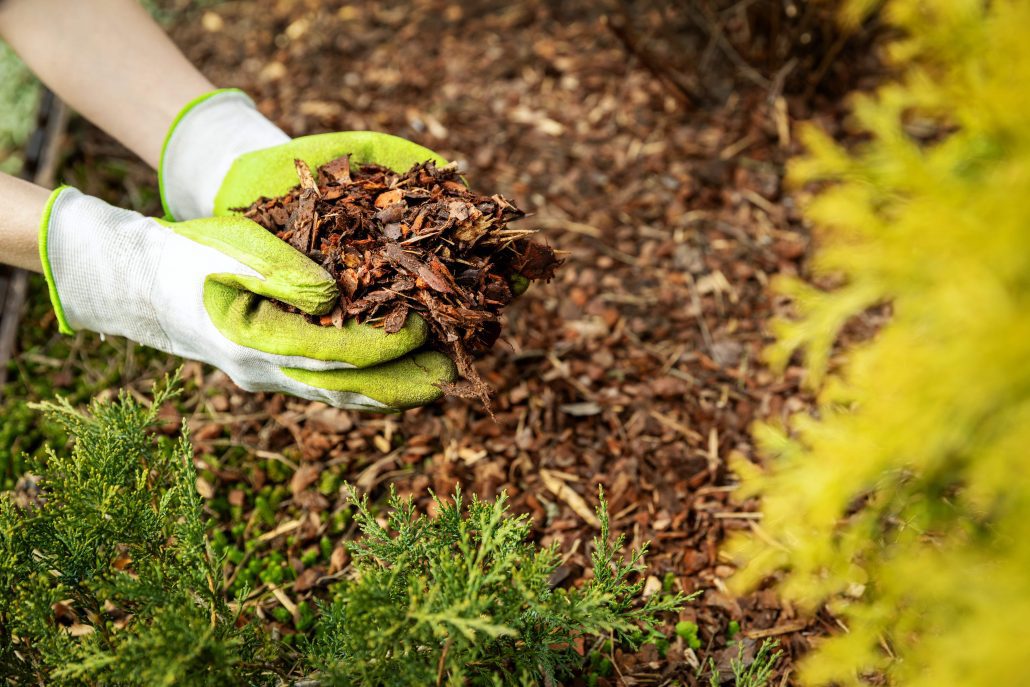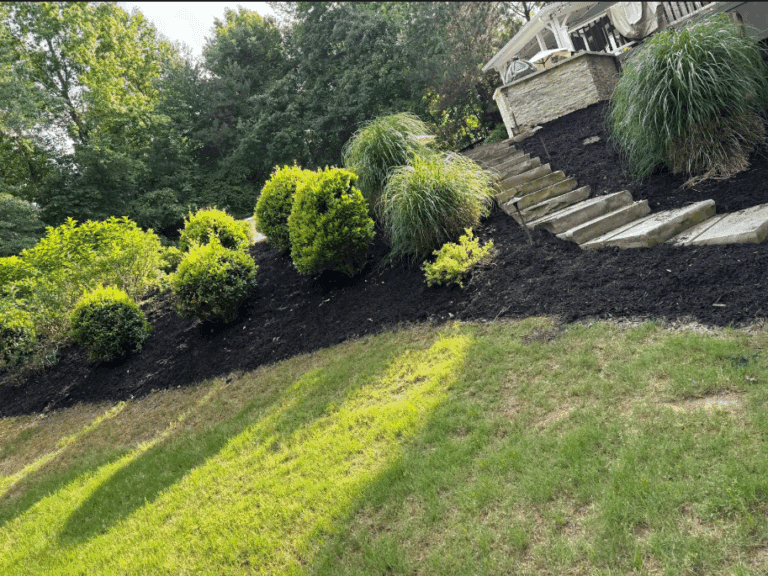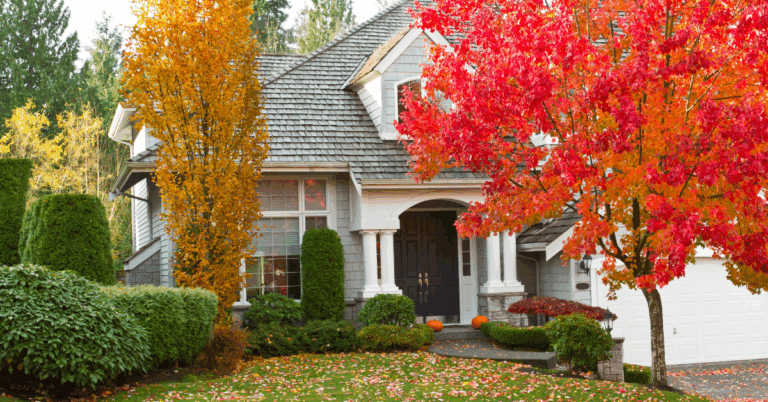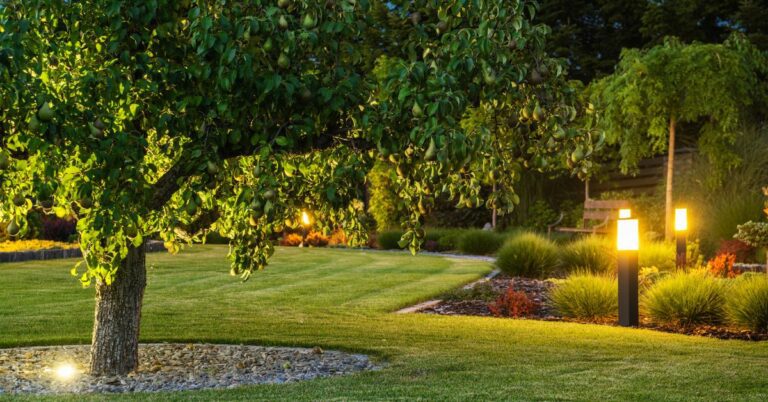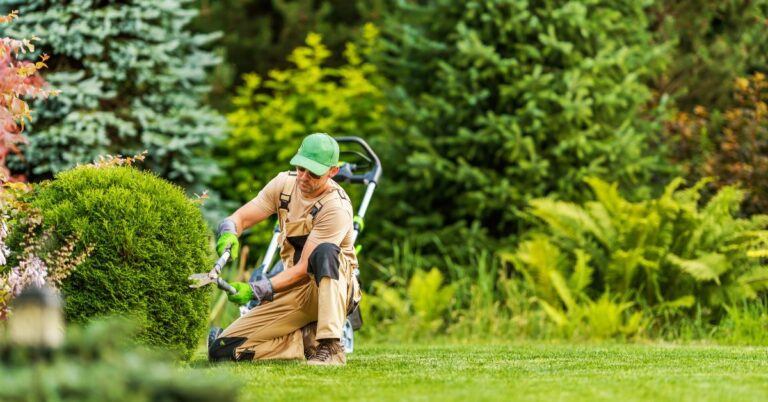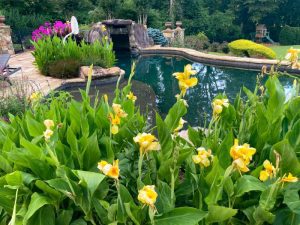Mulch is an important part of landscaping since it contributes to plant beds’ overall health and protection. When applied properly, mulch adds nutrients, retains moisture, and controls weeds, especially for freshly planted flowers.
Selecting the right mulch is particularly important, especially for the hot and humid summers of Georgia. The heat can completely dry out soil without adequate insulation. While there are various organic mulch options, some provide different benefits depending on climate, location, and landscape.
This means the best type of mulch for your flower beds depends on these factors. Overall, the importance of adding mulch to your flower beds will affect the overall health and longevity of your landscape.
The right mulch will discourage weed germination, retain soil moisture, and conserve water more efficiently than rocks and peat moss. Read on to learn what is the best mulch for your flower bed.
Top Organic Mulch Options For Garden Beds
Hardwood Mulch
Aged hardwood mulch is one of the top mulches for flower beds especially in Georgia. This durable and long-lasting mulch slowly decomposes into the soil adding nutrients back into the plant beds. For plants water-hungry plants, hardwood mulch excellently retains soil moisture due to its dense structure.
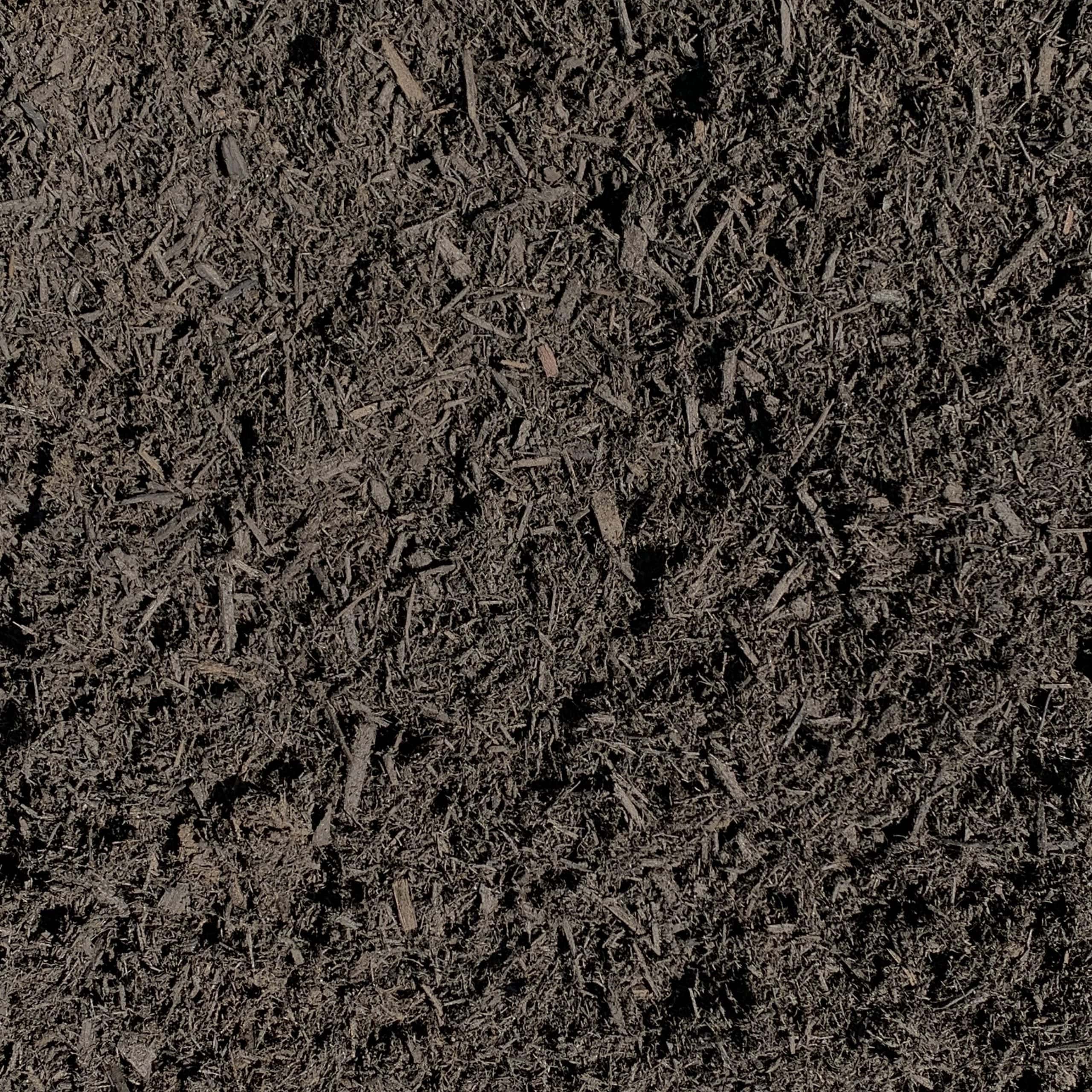
Cedar
Known for its woody aroma and rich color, cedar mulch is another slow-decomposing mulch capable of retaining moisture during dryer seasons. The structure of cedar mulch is large and fibrous which helps stabilize the soil structure and reduce erosion from rainfall. Most importantly, cedar’s natural oils act as a pest-repellent against ants and other pests.
Cypress
This “no-float” organic mulch is made from shredded cypress wood native to North America. This material is also dense and fibrous capable of sticking together during heavy rains. Meaning it does not displace after storms. This rich, golden color of cypress mulch is great for landscapes wanting a woody-brown pop in their landscape. As an effective weed suppressor and temperature-regulated mulch, cypress is an excellent choice
Pine Nuggets
Unlike finer mulches, pine nuggets are thick pieces of pine bark that do not stabilize as much as fibrous mulches. Pine nuggets require less maintenance and help retain moisture, especially with temperature changes. Rich in nutrients and color, pine nuggets help plants thrive in hot and cold seasons.
What to Consider When Choosing Mulch for Flower Beds
Soil Structure
The soil conditions of any landscape depend on the kind of soil in the area. The most common types of soil are clay, peaty, and loamy. Each with its characteristics and growing habits in areas used for planting. Based on the soil structure, select a mulch beneficial to both the plants and the necessary nutrients to survive.
Types of Plants
For certain perennials and annuals, not all mulches provide enough moisture or protect the plant. For moisture-loving plants, spreading a mulch that locks moisture within as opposed to throughout will dehydrate the plant. As for drought-tolerant plants in hot summers, too much moisture retention can over-saturate plants that do not need as much water to survive. Assessing the type of plants for optimal plant and root health will improve the longevity of seasonal growth.
Maintenance
The level of maintenance for mulched landscapes typically requires occasional raking to disperse the mulch. However, the higher the quality of the mulch, the less need to replace it.
Landscape Design
All landscapes vary in shape and size with different kinds of terrain. For sloped areas, choosing mulch that does not wash away is a must for areas experiencing heavy rain storms. Consider shaded and sunny areas of your landscape. Extremely sunny areas benefit from mulch as it insulates the soil and protects it from sunlight.
Frequently Asked Questions
Why is mulch imperative for soil and plant health?
Mulch is critical for soil health and plant growth. Incorporating the best mulch for flower beds keeps plants hydrated, reduces weed development, maintains temperate soil, and protects plants during harsh winters. Mulch also prevents pests and diseases from wreaking havoc on your soil and garden beds.
What’s the best mulch for flower beds in Georgia?
Since garden beds need adequate nutrition, well-aged mulch is the best. As it decomposes, it adds more nutrients to the soil. Georgia homeowners looking to maintain healthy gardens should opt for mulches that do the most with the fewest consequences.
Creech Landscape recommends using triple-ground hardwood mulch above all other mulch varieties. It controls weed production and its finer shreds provide the soil with nutrients for optimal plant growth. It is the top choice for areas exposed to excess water, challenging weather conditions, and other effects that harm root health and encourage soil erosion.
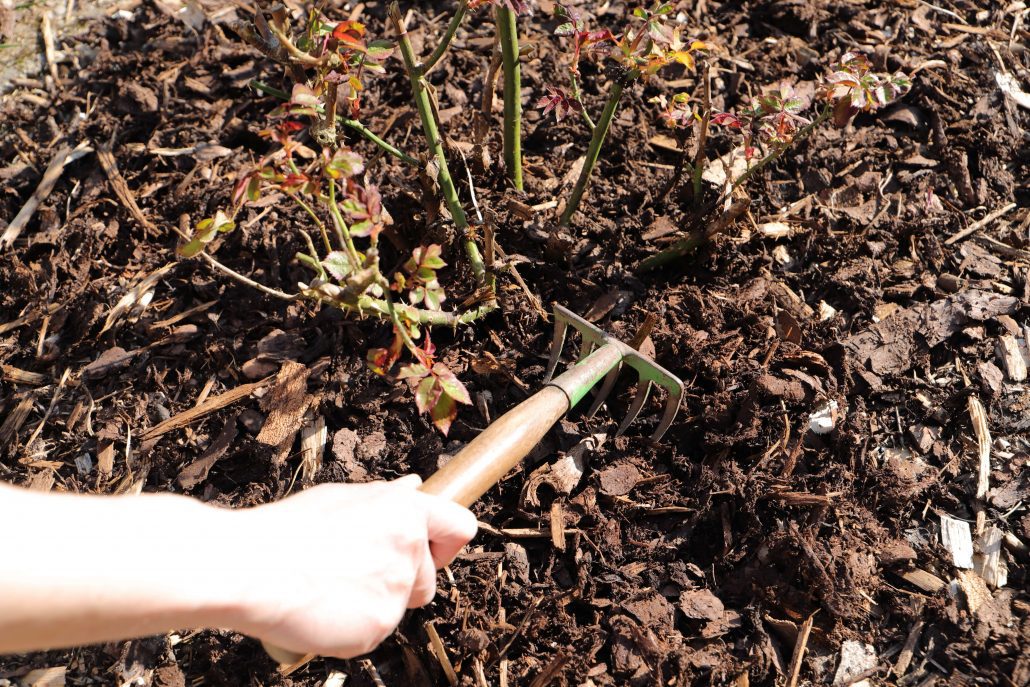
Keep your Georgia landscape protected.
The benefits of mulch extend past curb appeal and seasonal maintenance. It is one of the best ways to ensure your landscape is protected and nourished. However, the best mulch for flower beds depends on the specific needs of certain flowers and shrubs plus the conditions.
At Creech Landscape, enhancing your home is our priority. Whether you’re looking to install mulch or flowers, we got you covered! Let us know how we can help you enhance your outdoor space for long-lasting seasonal beauty!


